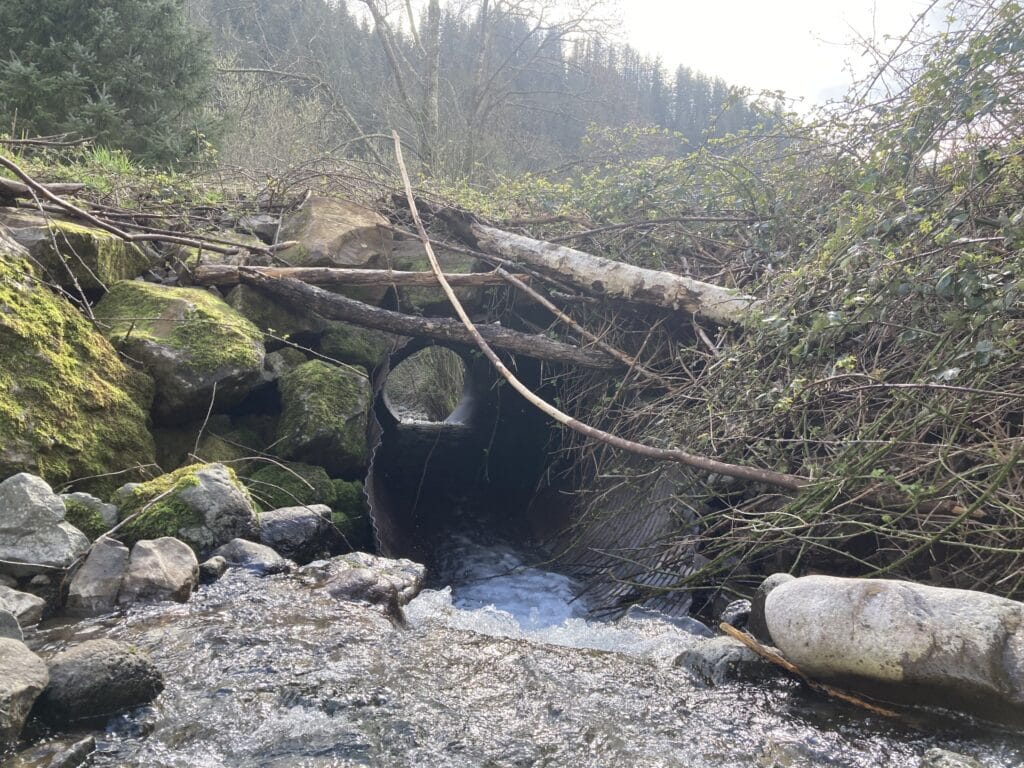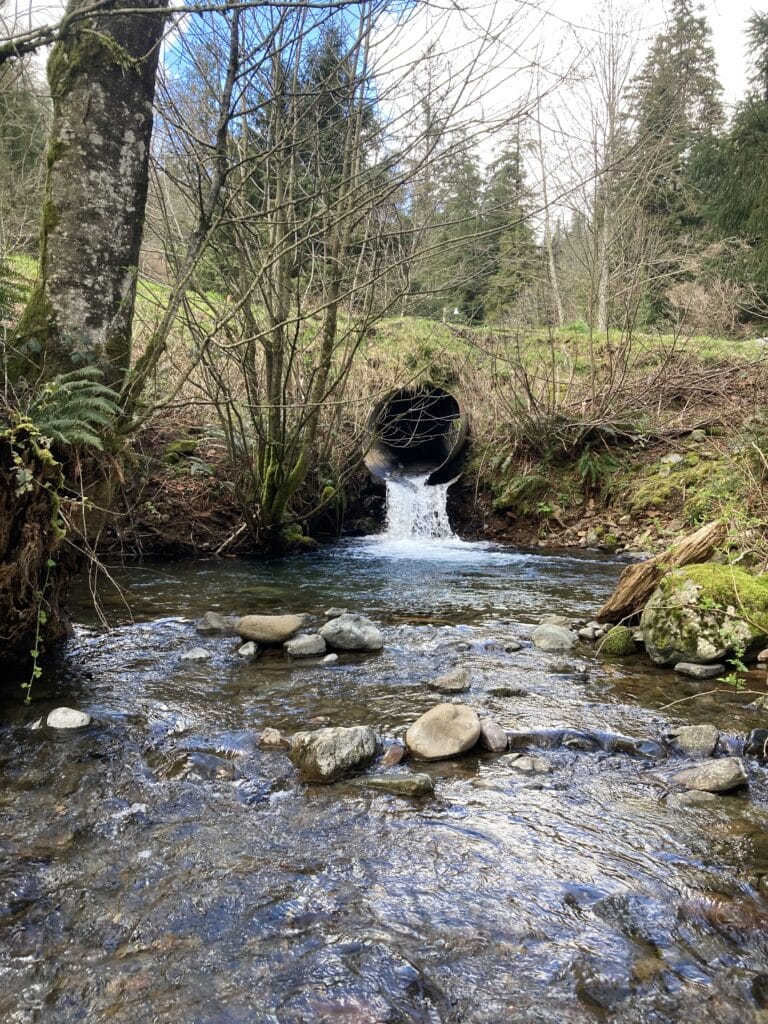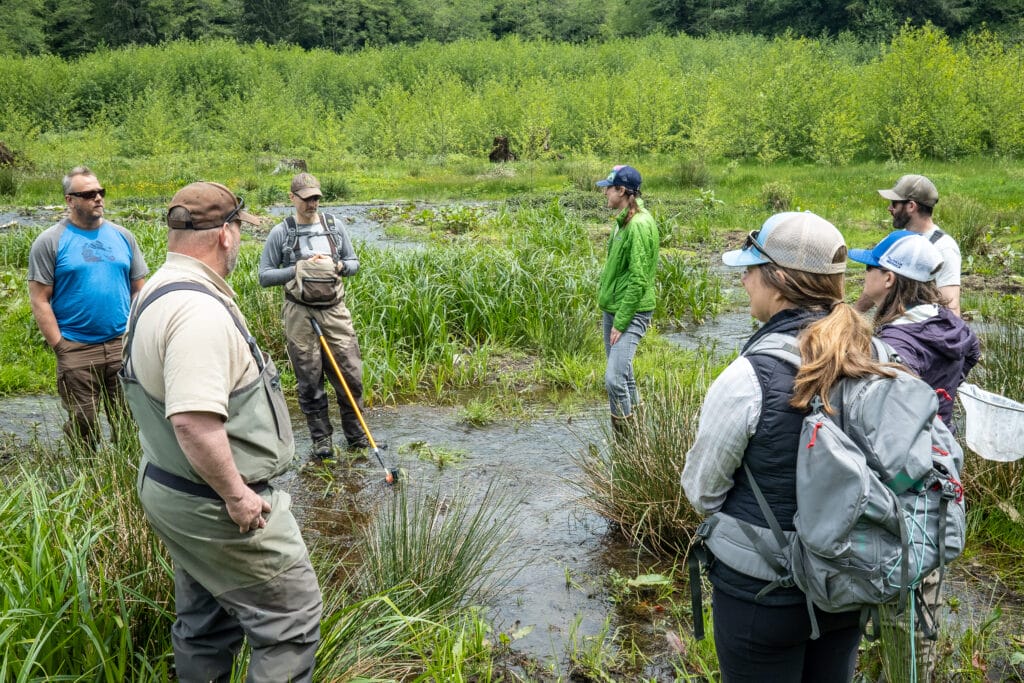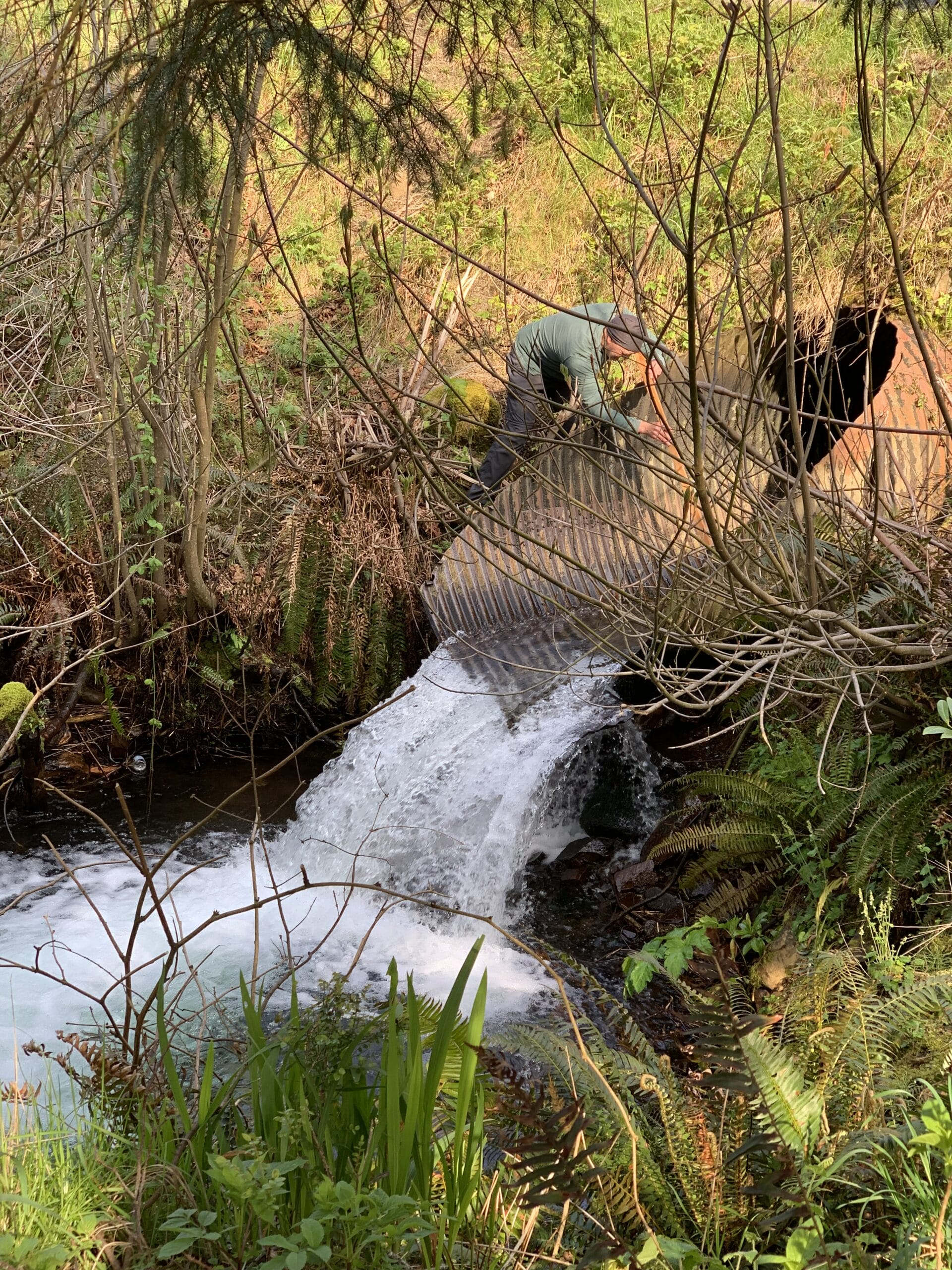Department of Transportation investments are improving road infrastructure for fish and local communities on Oregon’s North Coast
Over the past decade, the partners working together on the Salmon SuperHwy have been removing barriers to fish migration in watersheds across Oregon’s beautiful North Coast. When they started, they identified 93 priority barriers blocking over 180 miles of historic spawning and rearing habitat for Chinook, coho and chum salmon, winter steelhead, Pacific lamprey, sea-run cutthroat trout and other native fish. So far, they have removed fifty of those barriers and restored fish access to over 127 miles of habitat.
Far from slowing down, they are working harder than ever to reconnect the remaining 53 miles of their original goal in the coming years.

Two upcoming projects on Myrtle Creek and Mill Creek are among those next on the list. Both projects are being made possible with federal Bipartisan Infrastructure Law investments via the U.S. Department of Transportation.
On Myrtle Creek, a tributary of the Kilchis River, a failing, rusted, corrugated metal pipe will be replaced with a 42-foot bridge. Currently, the existing undersized culvert is blocking fish migration and is considered a public safety risk. It is prone to being plugged with debris and causing flooding during the high-flow events that are a common occurrence in the winter on the North Coast. The seams in the culvert are also separating, weakening the structure and threatening a failure that would wash out the road.. Replacing it will reconnect 1.6 miles of fish habitat, restore natural hydrologic processes, and remove a flood risk for local communities.
The culvert on Myrtle Creek runs underneath Kilchis River Road, which is the local community’s single access road to this part of the Tillamook Bay watershed. It is used by local businesses, emergency responders, and wildland firefighters. Replacing the old culvert with a new bridge will protect the community from a potential road failure that would cut off access to homes and state and industrial timber land.

Trout Unlimited and Tillamook County Public Works staff are working on project design and are planning to complete the culvert replacement and bridge installation in the summer of 2025.
Likewise, on Mill Creek, a tributary of the Trask River, project planning is underway to replace two culverts that block a combined 2.26 miles of upstream fish habitat. The undersized pipes currently cause frequent, localized flooding on a road utilized by farmers and local homeowners.
Liz Ransom, TU’s Salmon SuperHwy director, said this work is a win-win for the communities that depend on healthy fish populations as much as durable roads.
“These projects, made possible by Tillamook County Public Works and the Department of Transportation, not only help the Salmon SuperHwy Partnership meet our goals by improving fish passage, but they also improve local infrastructure for our community,” she explained. “We’re often able to hire from a great pool of skilled, local contractors to implement the work. The new bridges and improved culverts we install are designed to much higher standards than the originals, which saves on ongoing maintenance costs and will ensure access along important local transportation corridors long into the future.”

Learn more about the Salmon SuperHwy at www.salmonsuperhwy.org. Keep up with their work through Instagram and Facebook accounts.
Salmon SuperHwy partners and funders include: Tillamook County, Tillamook Estuaries Partnership, Tillamook County Creamery Association, Nestucca-Neskowin Sand Lake Watershed Council, Oregon Department of Fish and Wildlife, Oregon Department of Forestry, Oregon Department of Transportation, Oregon Watershed Enhancement Board, Oregon Fish Passage Task Force, U.S. Fish & Wildlife Service, Forest Service, Bureau of Land Management, U.S. Department of Transportation, Natural Resources Conservation Service, and Trout Unlimited. Special thanks to the Meyer Memorial Trust.



